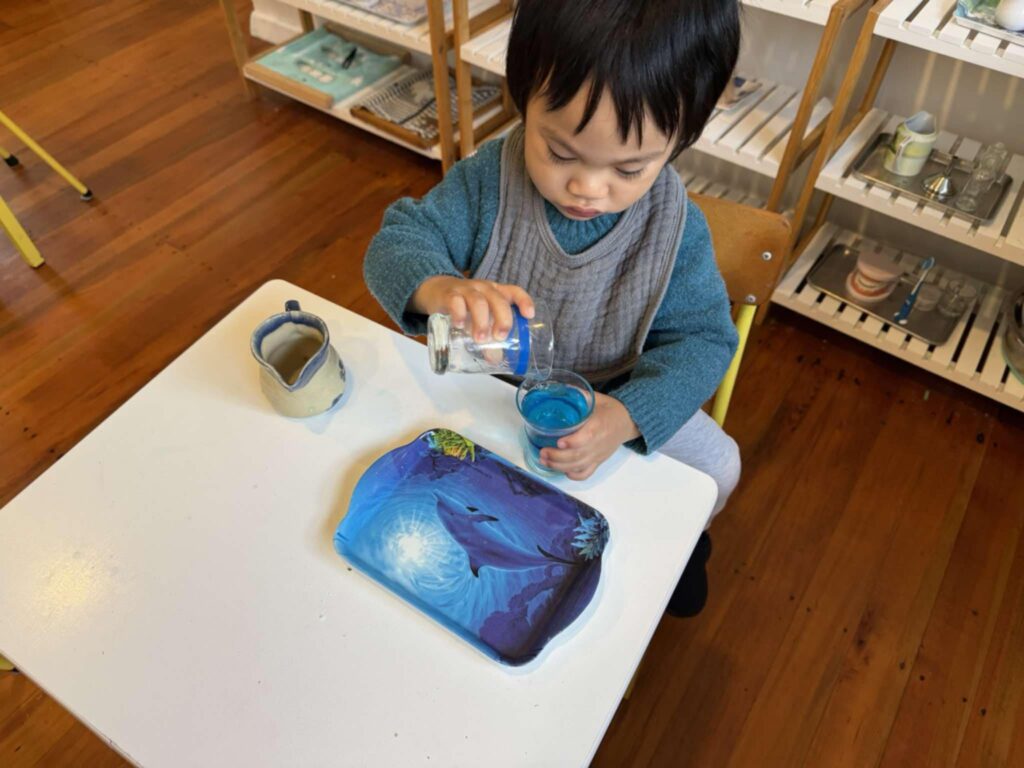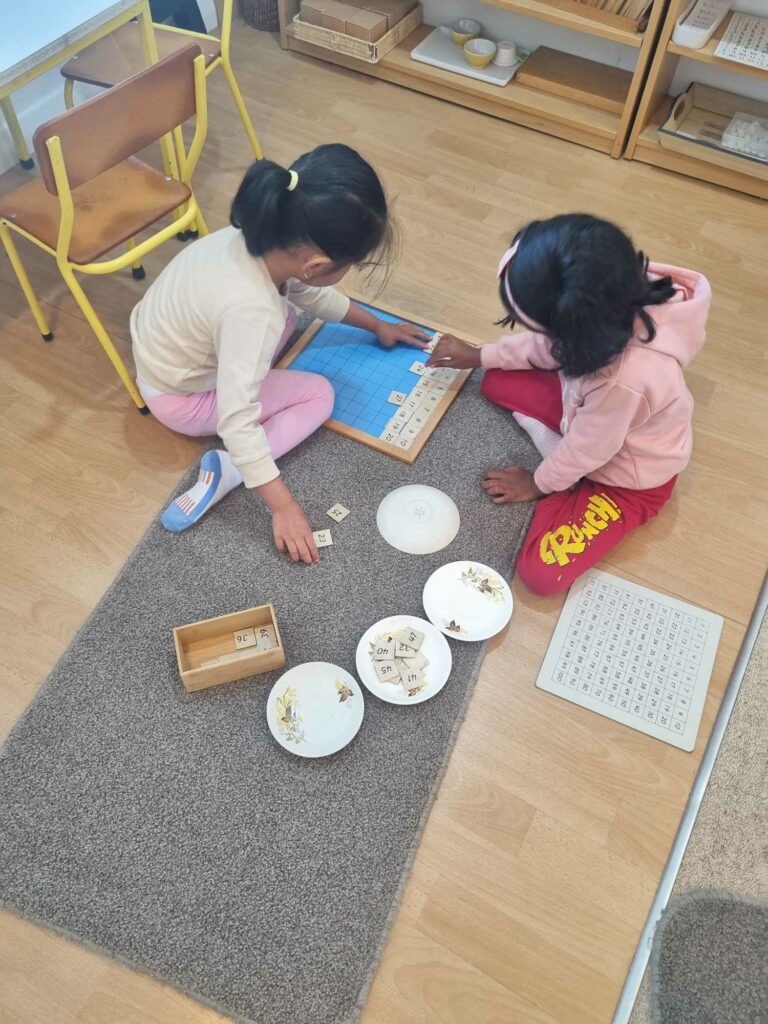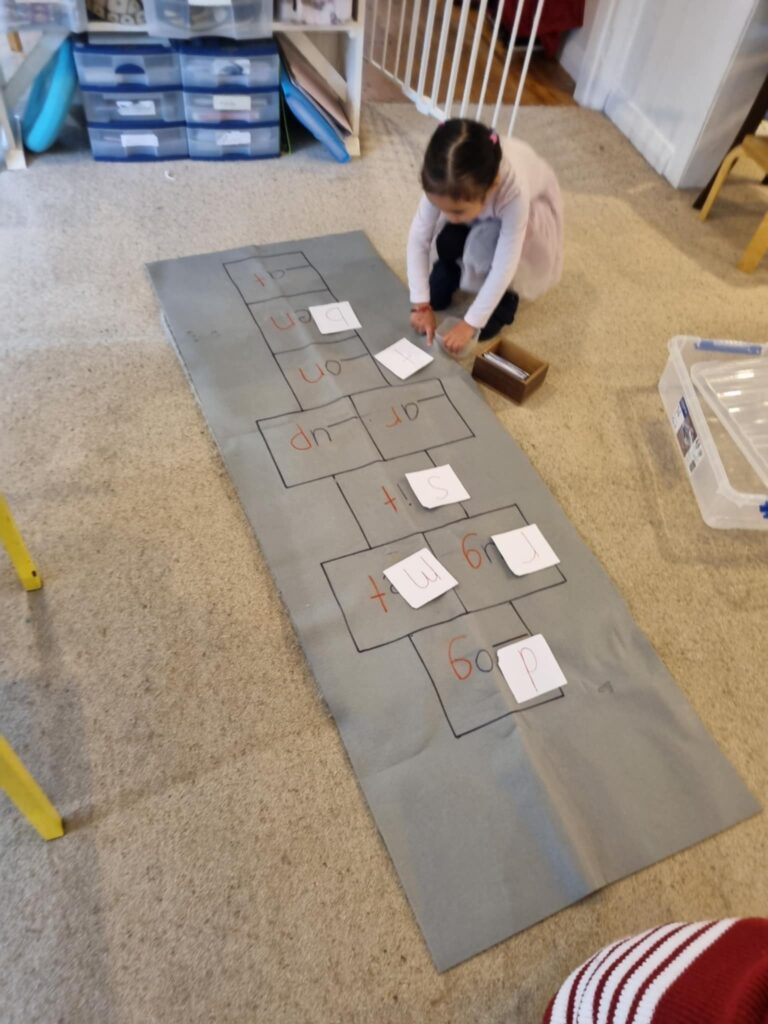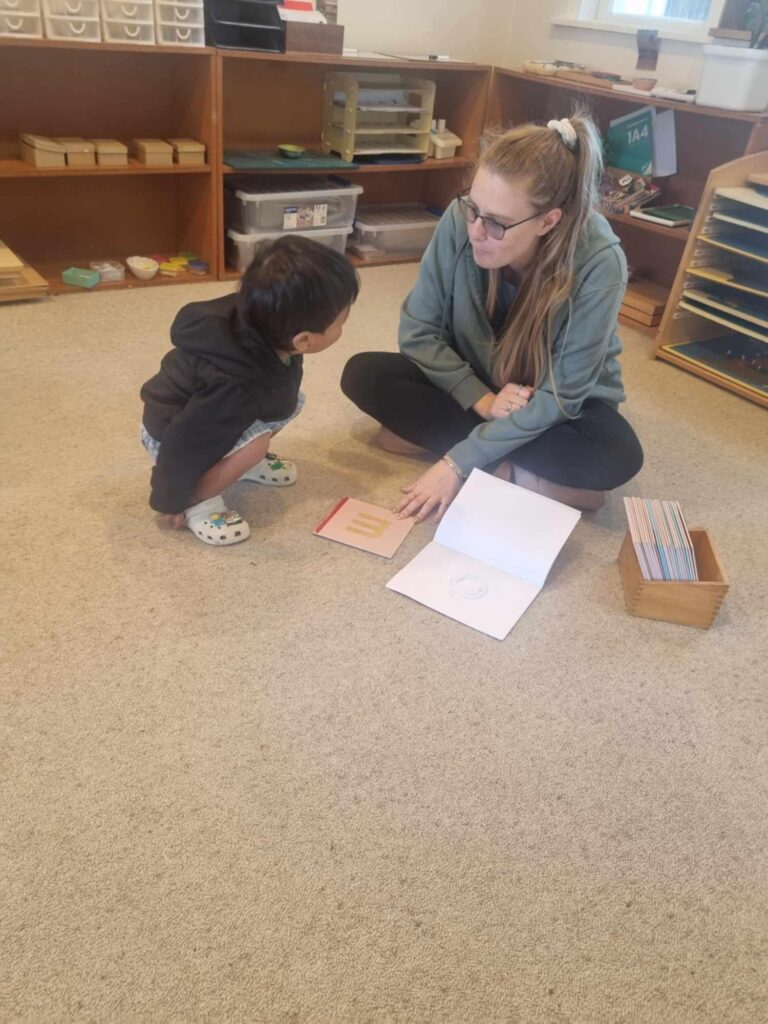
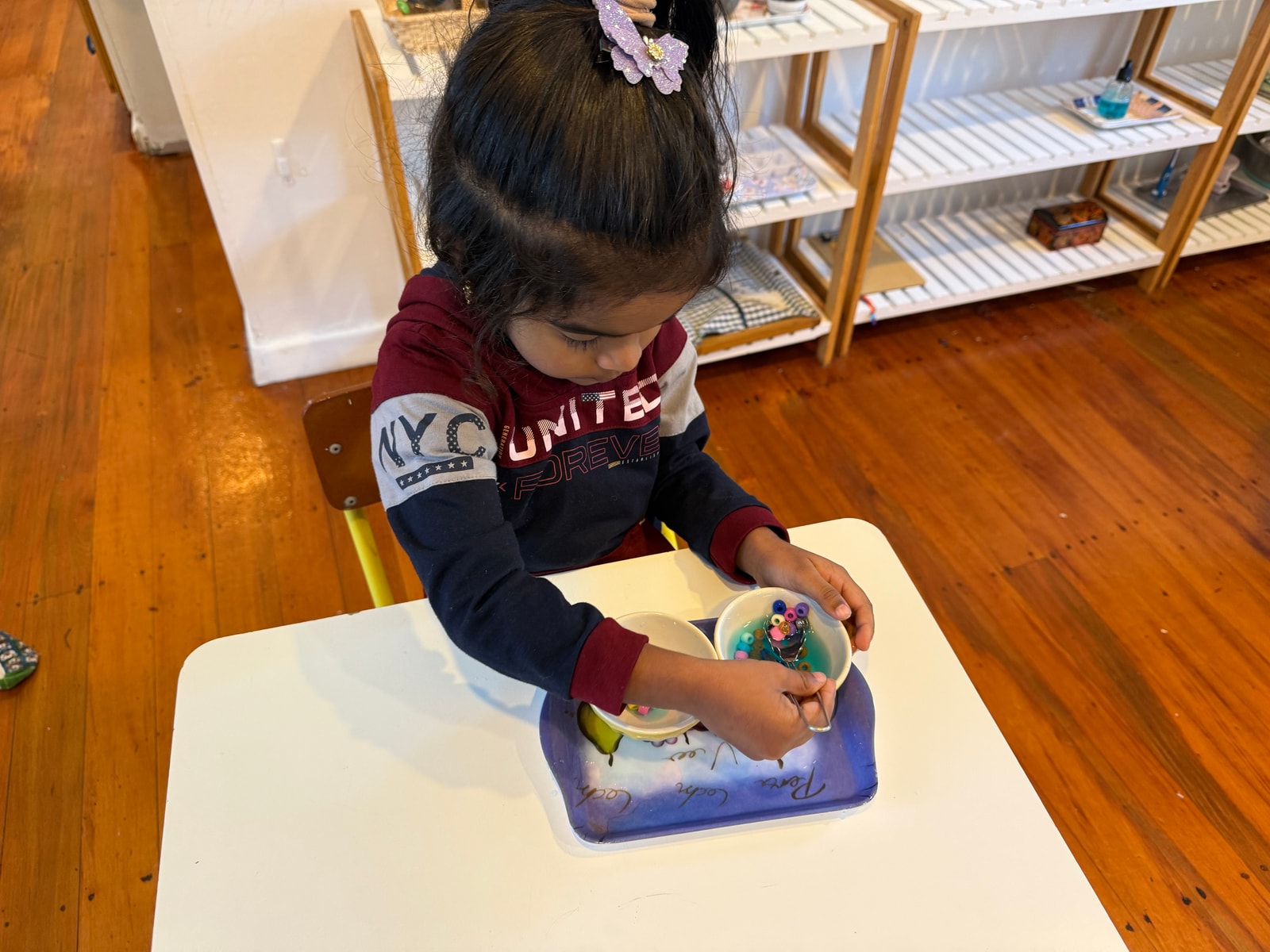
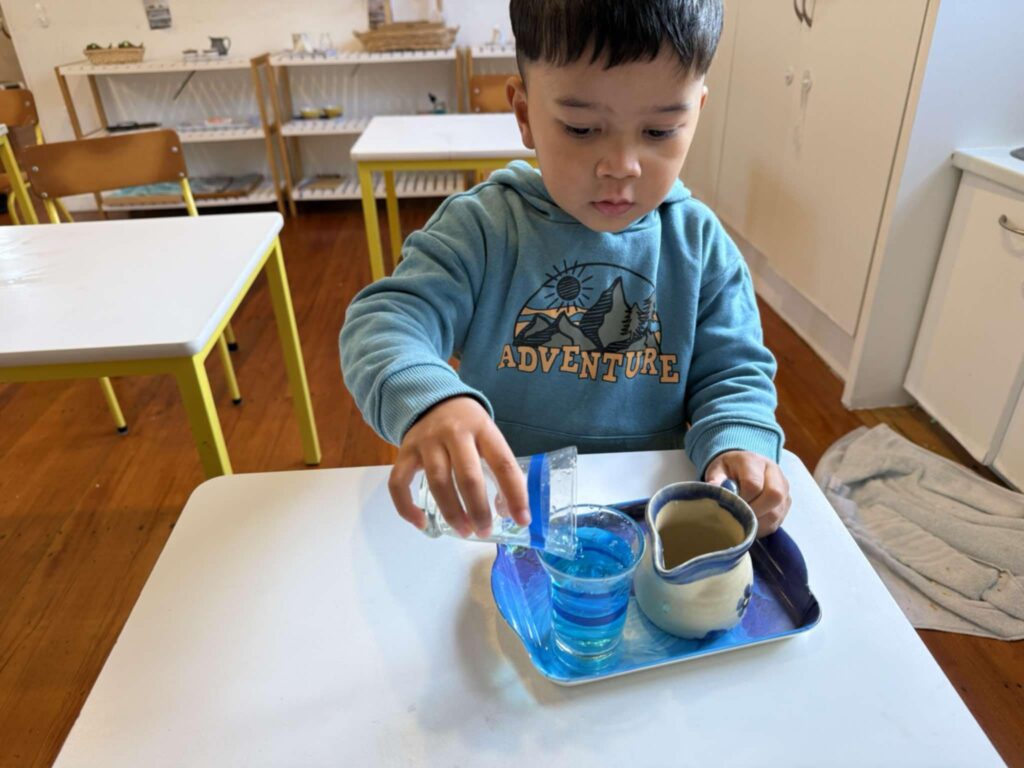
Montessori is a method of education that is based on self-directed activity, hands-on learning and collaborative play. In Montessori classrooms, children make creative choices in their learning, while the classroom and the teacher offer age-appropriate activities to guide the process. Children work in groups and individually to discover and explore knowledge of the world and to develop their maximum potential. Every material in a Montessori classroom supports an aspect of child development.
Key Values include:
Each child is valued as a unique individual. Montessori education recognises that children learn in different ways, and accommodates all learning styles. Children are also free to learn at their own pace, each advancing through the curriculum as they are ready, guided by the teacher.
Beginning at an early age, Montessori children develop order, coordination, concentration, and independence. Classroom design, materials, and daily routines support the individual’s emerging “self-regulation” (ability to educate one’s self and to think about what one is learning).
Children are part of a close, caring community. The multi-age classroom creates a family structure. Older children enjoy being mentors and role models; younger children feel supported and gain confidence about the challenges ahead. Teachers model respect, loving kindness, and a belief in peaceful conflict resolution.
Montessori children enjoy freedom within limits. Working within parameters set by their teachers, children are active participants in deciding what their focus of learning will be. Montessorians understand that internal satisfaction drives the child’s curiosity and interest and results in joyous learning that is sustainable over a lifetime.
Children are supported in becoming active seekers of knowledge. Teachers provide environments where children have the freedom and the tools to pursue answers to their own questions.
Self-correction and self-assessment are an integral part of the Montessori classroom approach. Children learn to look critically at their work and become adept at recognising, correcting, and learning from their errors.
